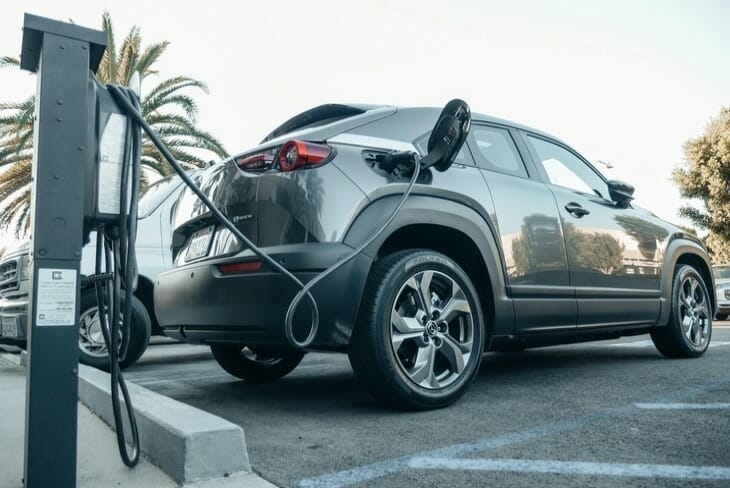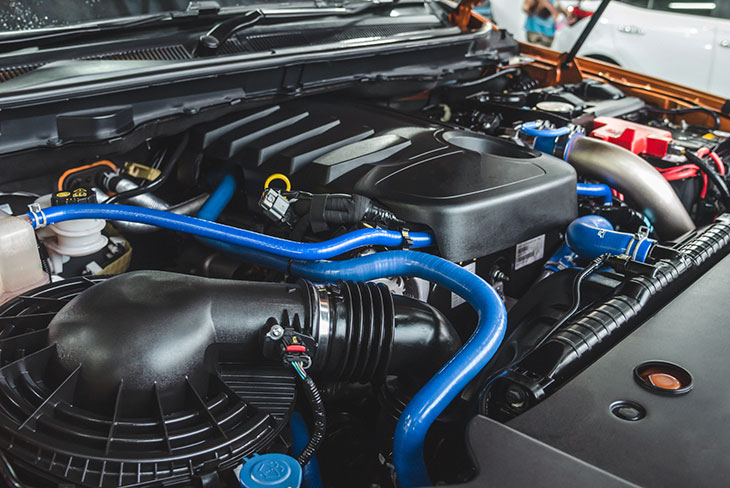What Is the Most Common Problem with Electric Cars?
 December 8, 2021
December 8, 2021- Categories: Electric Vehicles and Lemon Law

Underneath the shiny newness and celebrity of electric vehicles, there are both benefits and drawbacks to owning EVs. If you’re asking, “what is the most common problem with electric cars?”, the answers range from travel distance to safety, depending on who you ask.
Some of the most common problems with electric cars include:
- Reliability problems
- Risk of fire and recalls
- Limitations on driving range
- Problems with hackers
- Difficulty finding a trained mechanic
- Charger incompatibility and scarcity
- Battery troubles.
There were approximately 425,300 electric vehicles registered in California in 2020, representing nearly 42% of all electric vehicles in the United States. The California Energy Commission tracks Zero Emission Vehicle (ZEV) statistics, and the data shows that more than 187,600 ZEVs (including electric cars) were sold in California in the first three quarters of 2021. As you can see, electric vehicles represent a rapidly growing market in California.
Electric cars are fun and chic, and they’ve given rise to widespread trends on social media – from snapping a selfie at the Tesla dealership when you pick up your new car to flexing your eco-friendly lifestyle online. But electric cars – just like all cars – are sometimes defective. If you’ve been unlucky enough to purchase a defective electric car, you’ll be happy to know that California’s Lemon Law applies to EVs as well as combustion engine vehicles. To find out more about your lemon law rights, contact an EV lemon law attorney.
A Closer Look at Common Problems with Electric Cars
Reliability Problems
A recent article by Consumer Reports titled “Reliability Problems Plague Newer Electric Cars, Consumer Reports Survey Shows” stated that EVs from automakers like Audi, Kia and Porsche are no longer recommended by Consumer Reports (CR). Problems tend to arise with electric cars’ new technology, including snazzy infotainment systems, sophisticated power equipment, and gadgets, the CR study showed. Build quality and electrical systems are also a problem with some EVs. Electric cars also depreciate faster than their gas-powered counterparts. Because the technology in EVs changes at a rapid pace, obsolescence is a problem. A recent iSee Cars study showed that electric cars coming off a three-year lease depreciated 52%, 1.4 times greater than combustion-engine cars.
Risk of Fire and Recalls
According to CNBC, the shift to electric cars is costing manufacturers billions of dollars. Automakers have been hampered by reputation-damaging problems with fires, probes, recalls and sudden power loss. GM recalled 69,000 Chevrolet Bolt EVs following several reported fires due to two “rare manufacturing defects” in the lithium-ion battery cell. Several manufacturer recalls also center around malfunctioning EV software and batteries. Since 2020, General Motors, Hyundai Motor, and Ford Motor Company have recalled 132,500 electric vehicles, costing the automakers a combined $2.2 billion. Even Tesla has had recalls.
Limitations on Driving Range
The driving range on the 2020 Nissan Leaf is 150 miles, and the Tesla Model 3 (extended range) is up to 370 miles – hardly competitive with combustion-powered vehicles, many of which range several hundred miles per tank of gas. Driving in cold weather is also a problem for EVs — a study by AAA showed that vehicle range went down by 41% when the temperature dropped to 20 degrees Fahrenheit and electric cars’ heaters were on.
Problems with Hackers
Experts have called attention to growing concerns over electric vehicles being the target of hackers. Recently the autopilot of the Tesla Model X was hacked more than once. Hackers tricked the Tesla vehicle by flashing phantom images on a road, sign or wall, causing the vehicle to unexpectedly steer in the wrong direction or brake. New research also shows that chargers are vulnerable to cyberattacks.
Finding a Trained Mechanic
Because electric vehicles are so recent and extremely high tech, motorists report having trouble finding qualified mechanics to work on their EVs. While this problem may subside over time as more mechanics receive training, at present they’re in short supply.
Charger Incompatibility and Scarcity
The cost of a charging station can range from $2,500 for a level two charger all the way up to $35,800 for a DC fast charger. For this and many other reasons, home chargers and public charging stations are currently few and far between.
Are There Problems with Electric Car Batteries?
The difference between EV batteries and batteries in regular gasoline vehicles is significant.
The components of an EV battery can be highly flammable. Electric vehicles have a risk of “thermal runaway,” referring to the rapid and extreme rise in temperature spreading through battery cells. This has resulted in fires in some cars. EV batteries are extremely heavy, coming in at around 1,000 pounds. They are far larger and heavier than the small batteries in conventional cars, which weigh about 15 to 40 pounds. Because the lithium-ion batteries in electric cars are so central to the vehicle’s functioning, when a mammoth battery is defective, the vehicle is rendered useless.
According to Politico, EV batteries require a lot of minerals, and this translates into significant mining and transportation issues. A thousand-pound electric car battery requires the moving of 500,000 pounds of earth through mining, and most mines are overseas. This has significant environmental and supply-chain implications. If there are supply-chain delays, it could take weeks or months to get a replacement EV battery if yours is defective.
Is There an Electric Car Infrastructure Problem?
There’s currently a significant lack of electric car infrastructure in America. Roughly 40% of U.S. citizens do not live in single-family houses, which means they would have trouble installing a home charging station. These motorists would be completely dependent on public charging stations. Also, charging an EV takes hours compared to the minutes it takes to fill up a conventional car with gas. Cross-country travel and rural driving can be a problem because of the scarcity of charging station infrastructure.
Electric Cars and California Lemon Law
Fortunately for California motorists, the state’s lemon law applies to electric vehicles. Owners of EVs can seek the same legal recourse and remedy as gas-powered car owners through a lemon law claim. The California Lemon Law (Civ. Code, § 1793.2 et seq.) protects you when your vehicle is defective if a manufacturer’s dealer is unable to repair the car within a reasonable number of attempts. To qualify, the defect must substantially impair the vehicle’s …
- use,
- value, or
- safety.
California has one of the most consumer-friendly lemon laws in the nation that ensures vehicle owners’ protection. Under the Song-Beverly Consumer Warranty Act, if you purchase a defective vehicle that meets the legal requirements of a lemon, you are entitled to a refund, or the vehicle can be replaced at the manufacturer’s expense. The skilled lemon law attorneys at Neale & Fhima would be glad to assess your situation and answer your questions about whether your lemon law claim would be successful. Our firm has a 99% record of success in lemon law cases.
Why Choose Neale & Fhima?
We know that there are a lot of lemon law lawyers in California to choose from, but we believe Neale & Fhima stands head and shoulders above the rest. That’s because we have an outstanding pattern of success in handling lemon law claims for our clients! We have a winning track record, and our attorneys are among the best and the brightest. The team at Neale & Fhima is committed to each client’s case, and we give you our full attention.
Here are a few of the reasons you should choose us:
- Years of Experience. Our attorneys have more than 40 years of combined experience representing clients throughout Southern California.
- Our Lawyers Win Cases. Neale & Fhima enjoys a 99% success rate. We think this says a lot about the skill of our attorneys. While we cannot guarantee the outcome of any particular case, you can take comfort in knowing your claim is being handled by lemon law lawyers who have a track record of success.
- We Value Client Relationships. High-volume law offices tend to think of clients as nothing more than a case file. The file gets passed around until it ends up with a paralegal or junior associate who just wants to finish it and move on. Neale & Fhima is different. We enjoy getting to know our clients. It also helps us craft settlement agreements that meet their individual needs.
- We Know the Law. California’s lemon law is a fine example of how the state legislature can empower consumers. When it comes to clarity, however, the text of the statute leaves much to be desired. Our attorneys understand the quirks of the statute, as well as the many court opinions interpreting it. We put this knowledge to work for you.
- No Surprises. A handful of manufacturers control most of the U.S. auto market. We repeatedly go up against these same companies. This allows us to anticipate how they will respond to claims involving specific models and mechanical defects. Our attorneys will share these insights with you from Day One, so you are never in the dark about what to expect.
- Free Consultations. We will always discuss your situation with you in a free initial consultation before you make any decisions about a claim.

Attorney Aaron Fhima
Attorney Aaron Fhima is a trial attorney who has secured numerous settlements and verdicts against large corporations and some of the largest auto manufacturers in the world. Representing consumers and injury victims throughout the state of California, Aaron’s practice areas include personal injury, and lemon law litigation. Aaron has a long record of success taking on large defense firms; and he doesn’t hesitate to take cases to trial when necessary to enforce his clients’ rights.


